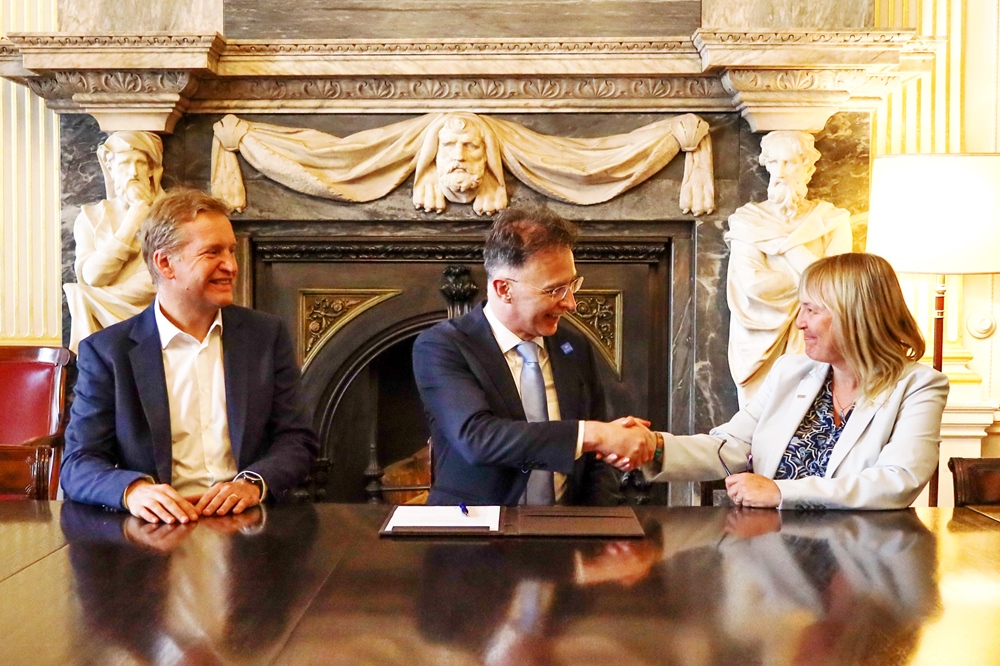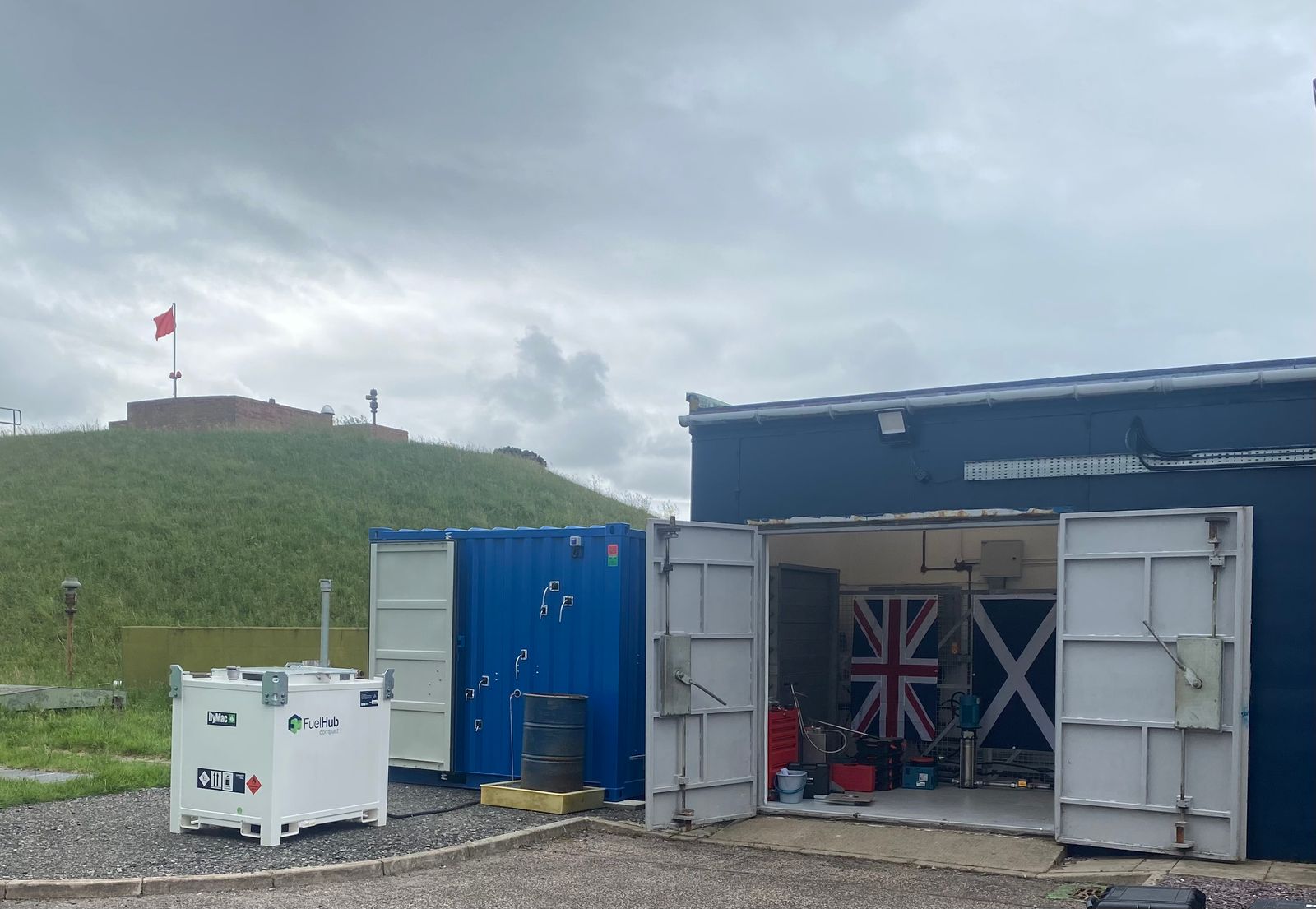UKSA and NNL work on world’s first space battery
This work, commissioned and funded by the UK Space Agency from NNL, will be delivered in a new £19 million laboratory in Cumbria equipped with next-generation equipment and technology. It will deliver a sovereign supply of fuel for space batteries in the context of a global shortage, enabling the UK and its partners to pursue new space science and exploration missions.
Creating new highly-skilled jobs in the North West of England, it will drive innovation in radiochemistry and separations science and open a new market for the UK space sector.
Atomic space batteries, also known as Radioisotope Power Systems (RPSs), release heat as the radioactivity within them decays. The heat can be used directly to prevent spacecraft from freezing and it can be converted into electricity to power onboard systems. The batteries go on working for decades, without need for maintenance over the many years in which a spacecraft could be travelling.
The support from the UK Space Agency follows the UK’s record investment to the European Space Agency for a range of new programmes, including £22 million for ENDURE (European Devices Using Radioisotope Energy), which will use radioisotopes to develop systems for warming and powering spacecraft.
Considered ‘mission critical technologies’ by space agencies in the UK and around the world, all the Apollo missions had an atomic battery in tow, as has every rover that has gone to Mars. Until now, these have been powered by Plutonium-238, a radioisotope produced only in the US, where supply is limited, and Russia, so an alternative is urgently needed.

Image courtesy NNL
NNL, the UK’s national laboratory for nuclear fission, has been working on this endeavor since 2009, when its researchers first discovered that Americium-241, an alternative to Plutonium-238, is produced during the radioactive decay of used fuel from nuclear reactors and that it emits power for over 400 years.
With the supply plentiful – the new laboratory is being opened at NNL’s flagship Central Laboratory on the Sellafield site, home to the largest resource of Americium-241 available for extraction in the world – the new collaboration will turn a proven scientific concept into a fully-realised technology. It will be operational within the next four years and is expected to be first used on the European Space Agency’s Argonaut mission to the Moon and for future missions into deep space.
Science Minister George Freeman said: "This new capability marks a significant milestone for the North West Space Cluster, adding skilled jobs to the existing 2,000 strong workforce.
"This exciting work from the National Nuclear Laboratory is supported by over £19 million in government funding, creating a nuclear-based fuel that will put Sellafield and the North West firmly on the global space technology map.
"Being able to offer a globally unique supply of Americium-241 will encourage investment and unlock growth opportunities for all sorts of UK industries looking to explore nuclear energy."
Professor Tim Tinsley, account director for this work at the National Nuclear Laboratory said: "For the past 50 years space missions have used Plutonium-238 to stop spacecrafts from freezing but it is in very limited supply. At NNL we have identified significant reserves of Americium-241, a radioisotope with similar properties to Plutonium-238 but game-changing potential for the UK’s space ambitions.
"This work, which is being made possible through the support of UK Space Agency, will see us applying decades of experience in separating and purifying used nuclear material in order to unlock great public benefits, and it goes to the heart of our purpose of nuclear science to benefit society.2
Dr Paul Bate, CEO at the UK Space Agency said: "We are backing technology and capabilities to support ambitious space exploration missions and boost sector growth across the UK.
"This innovative method to create Americium to power space missions will allow us not only to sustain exploration of the Moon and Mars for longer periods of time, but to venture further into space than ever before.
"Supporting the National Nuclear Laboratory’s expansion will make the UK the only country in the world capable of producing this viable alternative to Plutonium, reducing the global space community’s reliance on limited supplies, which are increasingly difficult and costly to obtain.
"The UK Space Agency is committed to keeping space activities sustainable, and this resourceful technology exploits otherwise unused waste Plutonium biproducts without generating additional waste."











